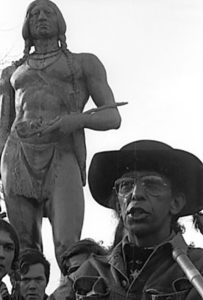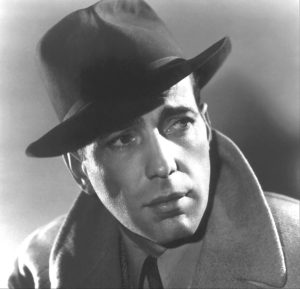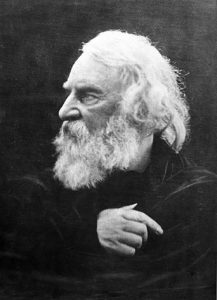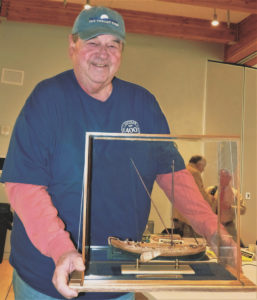PROVINCETOWN — Two things Provincetown’s Cheryl Andrews disliked as a child: history and Thanksgiving. History, she said, was “boring as dust” — with its rote memorization of dates, wars, and names. Thanksgiving was “too many people; too much food; too much stress.”
That all changed 20-odd years ago when, inspired by her grandmother, Andrews started tracing her family’s genealogy. Bit by bit, she learned the stories of her ancestors and of Cape Cod. And it occurred to her: “These people,” she said, “probably went all the way back to The Boat.”
“The Boat,” of course, was the Mayflower, which anchored 400 years (plus a couple of weeks) ago in Provincetown Harbor before the people it carried deemed the Outer Cape unlivable and headed to greener pastures in Plymouth.
Andrews did her homework, submitted it to the General Society of Mayflower Descendants, a lineage organization that dates from 1897, and received confirmation: she is descended from both William Brewster, a postman-turned-minister who became the Separatists’ senior elder, and Stephen Hopkins, a merchant who came to America’s shores seeking financial gain, not religious freedom.
Suddenly, for Andrews, history came alive. “These weren’t just names and dates anymore,” she said. “These were real, exciting stories, and real people” — people in whom she could see something of herself. As for Thanksgiving, “It’s actually my favorite holiday now.”
Andrews’s experience isn’t unique; an estimated 35 million Mayflower descendants roam the globe today. One of them is Jane Hurt, who is a descendant six times over (she has traced roots to William White, his wife Susanna, their son Peregrine — born on board in Cape Cod Bay — Richard Warren, Francis Cooke, and his son John Cooke). Hurt currently serves as the governor general of the General Society.

In a concrete sense, being a Mayflower descendant “makes you a part of history,” Hurt said. And that’s at once a good thing and a bad one. Recent years, particularly this one, have seen fierce scrutiny and deep rethinking of many foundational American myths. Historians have debunked nearly every detail of the elementary-school-pageant-style Mayflower story, from the travelers’ outfits to their homogeneity to the name we call them (they weren’t “Pilgrims” until about 200 years after they landed), to, crucially, their relationship with the indigenous people on whose land they arrived.
Being a Hurt-style Mayflower descendant, for whom history feels personal, comes with the need to reckon with the fact that that personal history isn’t all idealism and exceptionalism, but “much harsher and more difficult,” said Andrews.
That realization can be hard to handle, she said. In Andrews’s opinion, the darker parts of the Mayflower and Thanksgiving stories are hugely important.
“The pendulum is swinging in a direction where we’re very focused on all the bad things that happened,” she said. “I understand that because they got ignored for so many years. It’s appropriate to gain a more realistic understanding of history. But over time, I hope we can figure out how to look back on these events, understand the history from all different perspectives, and then figure out the way to differentiate between commemoration and celebration.”
Hurt agreed. Her history is “not all good or all bad,” she said. “But it’s what we’re made of. All we can do is take that information and make ourselves better as we go forward. All of the descendants feel a joy and a sadness about our history.”
And when it comes to the difference between celebration and commemoration, she sides more with the former. “I am proud to be a descendant of a Mayflower Pilgrim,” she said. “I am proud of my history, even though some of it is bad.”
Not all Mayflower descendants jump so quickly to their ancestors’ defense. For the Rev. Rebecca Pugh, minister of the First Church Ipswich, who is, like Andrews, a descendant of William Brewster (and whose family also descends from the Haudenosaunee, also known as the Iroquois Confederacy), Thanksgiving calls much more for commemoration than it does for celebration.
“We’ve always enjoyed the family part of Thanksgiving,” she said. “But have always worried and struggled with and felt uncomfortable with the really clear devastation that was wrought by the Pilgrims and other settlers.”
Pugh, like her relative Andrews (the two women have never met), agreed that contextualizing history is ultra-important, and that more people than ever are doing so. One upside of the pandemic’s shrinking of Thanksgivings, Pugh said, is that people across the nation had more time to reflect on the nuances of the stories we pass down.
And nuance, Pugh stressed, is key. She can, she said, be proud of William and Mary Brewster — Separatists who took in children of the community whose parents had died — without glorifying the damage that the Mayflower’s passengers did.
“My people took land, food, seed grain, and lives from the people who lived here before them,” she said. “And I am devastated to have that be part of my past.”






